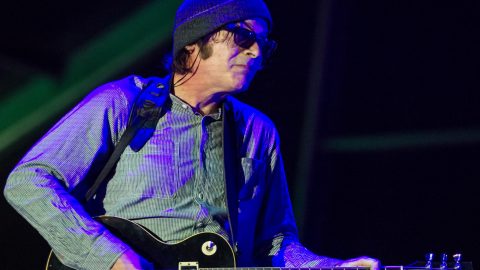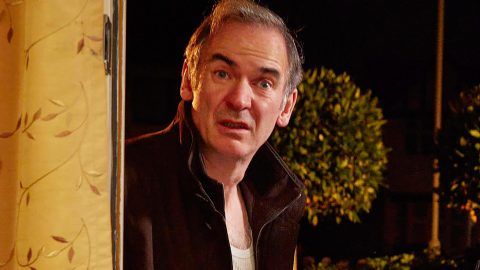
In August 1969, Miles Davis and his band spent three days holed up in a studio in Manhattan before emerging with a sprawling, improvised album that sounded like nothing else that had come before. It was the soundtrack to a society in flux, arriving in the wake of the assassination of Martin Luther King Jr, widespread anti-Vietnam war protests and the hippie optimism of Woodstock, which ended the day before they started recording. Influenced by the psychedelic rock of Jimi Hendrix and the funk and soul of Sly and the Family Stone, Davis was taking jazz somewhere new. He wanted to call his spooky, wildly experimental record ‘Witches Brew’. His then-wife (and future-funk diva) Betty Davis had a better idea. “I suggested ‘Bitches Brew’,” she recalled later. “He said: ‘I like that.’”
When it was released in March 1970, ‘Bitches Brew’ divided critics. While many praised the album’s rich, expressive musicality, some purists reacted in much the way folk fans had to Bob Dylan ‘going electric’ in 1965: by accusing Davis of betraying the genre he’d done so much to shape. Half a century on ‘Bitches Brew’ now stands as a landmark of avant garde jazz. It continues to have a mind-altering effect on new generations of musicians, with an influence felt across hip-hop, house, electronica and drum and bass. Martin Terefe, a producer whose 29-year career has seen him work with everyone from Yusuf Islam to KT Tunstall and Yungblud, first heard the record when he was 16. “Three decades later, I still want to put it on,” he says. “Every time you listen to it your brain takes another journey through the music. That makes you feel really free, as a musician. It’s liberating.”
Ahead of the album’s 50th anniversary, Terefe was part of a team planning a tribute concert in London. “It started as an idea to celebrate ‘Bitches Brew’ at the Barbican,” he explains. Of course, the 2020 pandemic soon put paid to those best laid plans. “I was a bit bummed out,” he adds.
Inspired by Davis’ own fearlessness, Terefe decided to press on with the project regardless. Even if they couldn’t perform a tribute concert, could they still record an album? When super-producer Paul Epworth [Adele, Rihanna] offered up use of his Church Studios in Crouch End, Terefe and his collaborator Bruce Lampcov set about enlisting the most exciting talents in British jazz. “Bruce was ecstatic because he’d been to Brixton Electric and seen 900 kids jumping around as if it was a rock gig to a bunch of East London jazz musicians,” recalls Terefe. “That was Nubya Garcia.”
Garcia, who released her debut album ‘Source’ in 2020, was joined at Church Studios by three-quarters of Mercury Prize-nominated jazz quartet Sons of Kemet: saxophonist Shabaka Hutchings, tuba player Theon Cross and drummer Tom Skinner. The rest of the 12-strong band was filled out by Terefe and The Invisible’s Dave Okumu on guitar, drummer Dan See, violinist Raven Bush, bassist Tom Herbert, keyboardists Nikolaj Torp and Nick Ramm and Radio 1’s Benji B on the decks. Recording took place over three days in December 2020, marking the first time many of the musicians had been able to play with each other in real life since the start of the first lockdown in March. “It felt really exciting,” remembers Garcia. “I thought: ‘I’ve really missed this.’ There were many different ways we all made music during lockdown, but my favourite will always be in the room with people.”

When the musicians were set up, Terefe got the session started with an evocative instruction. “I asked everyone to play a note that described the frustration of that last year of not being able to play together, and hold it for as long as they could,” he remembers. “That’s how we set off.” The strange, swirling, cacophonous sound that followed became the album’s epic 23-and-a-half-minute opening track ‘London Brew’. “It was really just three days of pure improvisation from there,” says Terefe, who points out that there were two contrasting forces at work on the musicians. “There was the Miles homage, paying tribute to a real maestro who had influenced all of us in different ways, and the other part was being ourselves in quite a turbulent time. There were moments when it got really fiery, but most of the time it was really sad and melancholic. It felt really momentous to be able to do it.
For Hutchings, who calls ‘Bitches Brew’ a “seminal record”, the best way to pay tribute to Miles Davis was by feeling free enough to be himself. “I thought a lot about Miles’ life,” he says. “We can never know what his attitude would be if he was in the room, and he probably wouldn’t have wanted to rehash ‘Bitches Brew’, but from all the stories I’ve heard I think he would want everyone to be themselves. To commit to whatever they’re doing. It seems like when people held back, Miles didn’t like it.”

Others drew specific influences from Davis’ ground-breaking techniques, such as his use of tape delay pedals to transform his trumpet sound.“[Album track] ‘Miles Chases New Voodoo In The Church’ starts with Nubya’s crazy, octave pedal sax solo,” says Terefe. “Nubya said she was trying to channel Jimi Hendrix, and Miles’ attempts to sound like Jimi through his effects’ pedal.”
Earlier this month, ‘Bitches Brew’ saxophonist Wayne Shorter died at the age of 89. Joni Mitchell was among the many to pay tribute, calling him: “the best saxophonist ever, in my opinion. Miles thought so too.” Davis himself died in 1991, at the age of 65. Terefe says it’s important the freedom-loving mentality these great musicians embodied doesn’t die with them.
“Musicians from that era – jazz, rock or even folk musicians – were trying to do things that were different,” he says. “Nowadays music-making, regardless of genre, is a lot about not being different. It’s trying to find common ground, and fit into a genre. Listening back to Wayne Shorter’s albums – it’s wild stuff! He was trying to be different. Sometimes with great success, sometimes you think: ‘I’m not sure about that’. But they had a go! They weren’t scared to upset anyone, or to play something that didn’t fit in. I think it’s important to keep that spirit alive.”
‘London Brew’ is released March 31 via Concord Jazz
The post Inside ‘London Brew’: the jazz supergroup on their mind-bending tribute to Miles Davis’ ‘Bitches Brew’ appeared first on NME.







